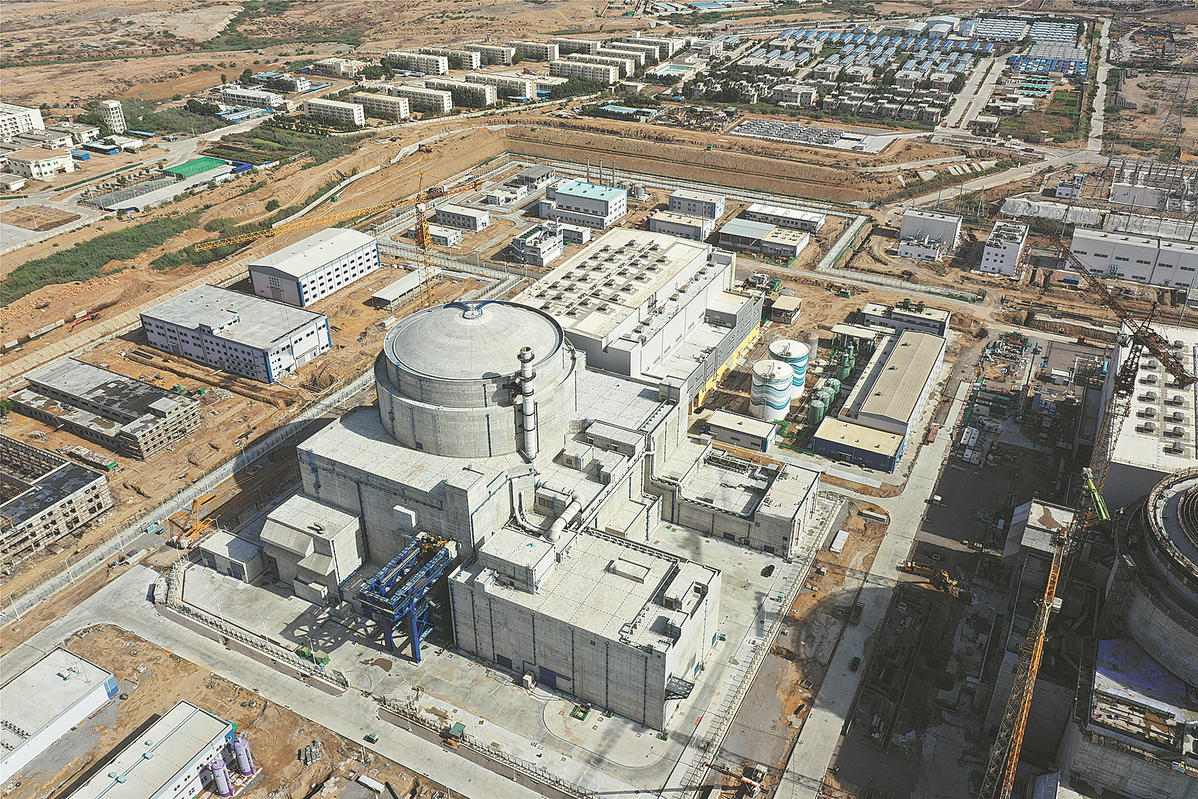
The K-2 unit of the Karachi Nuclear Power Plant begins operating in Pakistan in May 2021. Both K-2 and K-3 units use Hualong One, China's third-generation nuclear power technology with full intellectual property rights. (PHOTO:?XINHUA)
By?Staff?Reporters
The K-3 unit of the Karachi nuclear power plant was inaugurated in Pakistan on February 2, marking completion of the first two units of Hualong-1 overseas project.
Hualong-1 is one of the third-generation nuclear power units and independently developed by China. The first Hualong-1 unit K-2 went into operation in May 2021. The K-2/K-3 units of Karachi nuclear power plant are the first million-kilowatt-grade single-unit power project in Pakistan.
Pakistan used to suffer from severe power blackouts. At its most severe, the capital Islamabad would have one hour power cuts every three hours, according to local residents.
The operation of the two units have greatly cut the frequency and length of power outages. The two units could generate clean energy of nearly 20 billion kWh per year, satisfying the power demand for production and life of the two million local residents.
This is the equivalent of reducing consumption of 6.24 million tons of standard coal, cutting 16.32 million tons of CO2 emissions and planting 140 million trees, which is of great significance to optimize the energy structure of Pakistan and cope with global climate changes.
The Karachi project also brought other benefits to local people. Fan Haiping, general manager of the Karachi project at China National Nuclear Corporation Overseas Ltd., said that, during the construction, over 60,000 job vacancies were created. The project also conducted training for Pakistanis of more than 100,000 person times, said Fan, adding that in addition, they had trained some 8,000 skilled Pakistani employees who can work independently.
The trio will conduct a series of experiments in fields such as life science, fluid physics, combustion science and materials science. Notably, this is the first time that fruit flies have been taken on a Chinese space mission as experimental subjects. What made scientists choose fruit flies? What experiment will they undergo?
